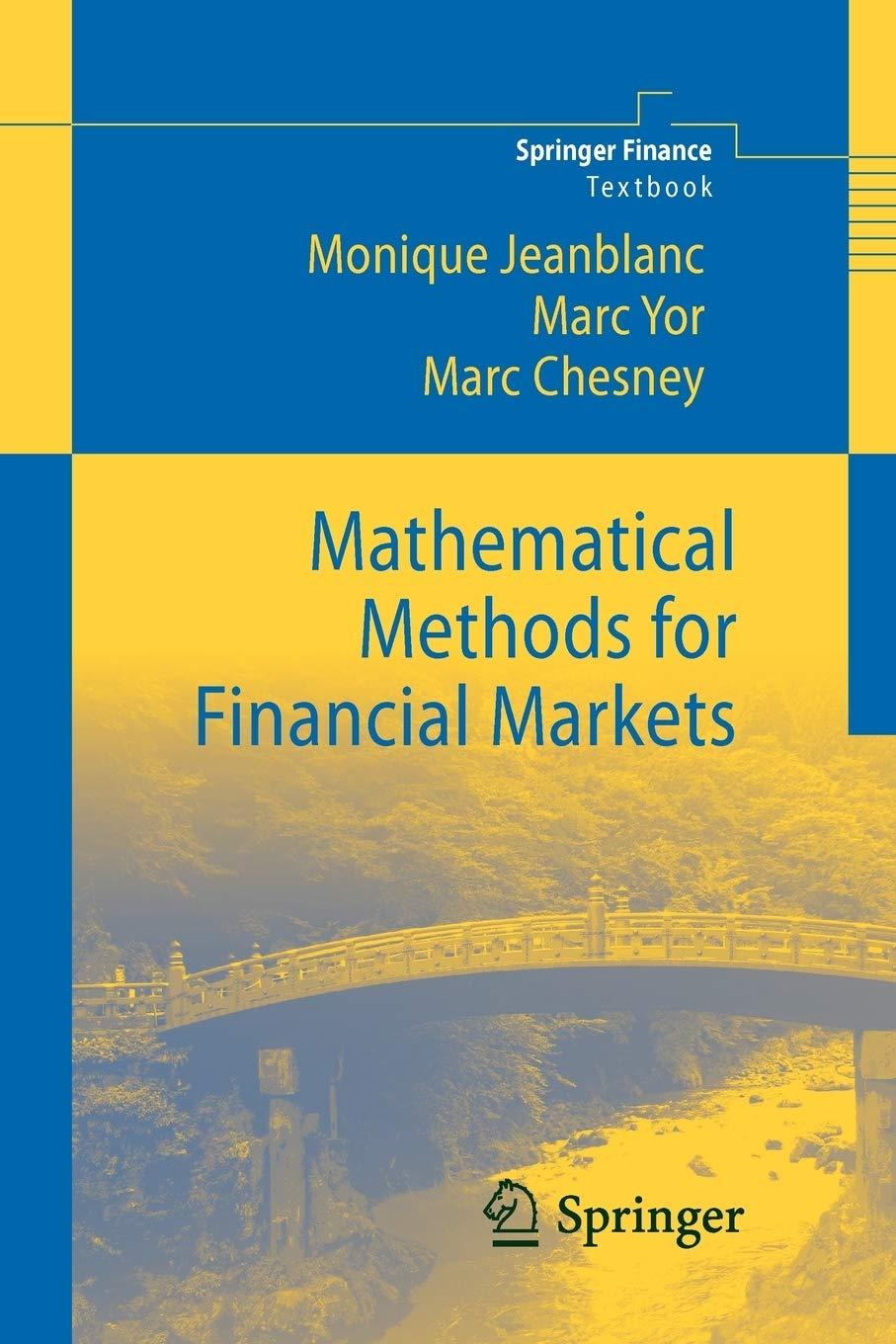Assume that the hypotheses of Proposition 5.9.3.1 hold and that (1 / p_{infty}(cdot, L)) is integrable with
Question:
Assume that the hypotheses of Proposition 5.9.3.1 hold and that \(1 / p_{\infty}(\cdot, L)\) is integrable with expectation \(1 / c\). Prove that under the probability \(R\) defined as
\[\left.d R\right|_{\mathcal{F}_{\infty}}=c /\left.p_{\infty}(\cdot, L) d \mathbb{P}\right|_{\mathcal{F}_{\infty}}\]
the r.v. \(L\) is independent of \(\mathcal{F}_{\infty}\). This fact plays an important rôle in Grorud and Pontier [411].
Example 5.9.4.8 The first example of a pseudo-stopping time was given by Williams [844]. Let \(B\) be a Brownian motion and define the stopping time \(T_{1}=\inf \left\{t: B_{t}=1\right\}\) and the random time \(\theta=\sup \left\{t
Example 5.9.4.11 Let \(W\) be a Brownian motion, and \(\tau=g_{1}\), the last time when the BM reaches 0 before time 1, i.e., \(\tau=\sup \left\{t \leq 1: W_{t}=0\right\}\). Using the computation of \(Z^{g_{1}}\) in Subsection 5.6.4 and Proposition 5.9.4.10, we obtain the decomposition of the Brownian motion in the enlarged filtration \[\begin{aligned}
W_{t}= & \widetilde{W}_{t}-\int_{0}^{t} \mathbb{1}_{[0, \tau]}(s) \frac{\Phi^{\prime}}{1-\Phi}\left(\frac{\left|W_{s}\right|}{\sqrt{1-s}}\right) \frac{\operatorname{sgn}\left(W_{s}\right)}{\sqrt{1-s}} d s \\
& +\mathbb{1}_{\{\tau \leq t\}} \operatorname{sgn}\left(W_{1}\right) \int_{\tau}^{t} \frac{\Phi^{\prime}}{\Phi}\left(\frac{\left|W_{s}\right|}{\sqrt{1-s}}\right) d s \end{aligned}\]
where \(\Phi(x)=\sqrt{\frac{2}{\pi}} \int_{0}^{x} \exp \left(-u^{2} / 2\right) d u\).
Step by Step Answer:

Mathematical Methods For Financial Markets
ISBN: 9781447125242
1st Edition
Authors: Monique Jeanblanc, Marc Yor, Marc Chesney





